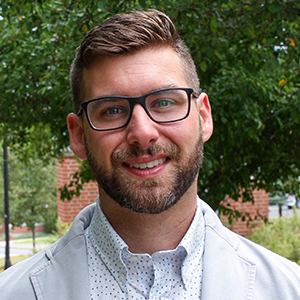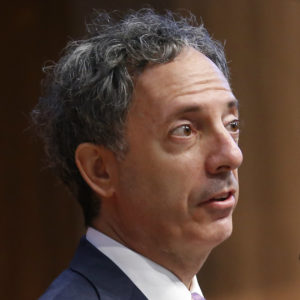What Is Political Philosophy?
Explore the work of Leo Strauss, one of the twentieth century’s most consequential teachers and scholars of political philosophy.
Thursdays | March–April 2025
Online
“Odd that mankind’s benefactors should be amusing people.” This is the first line of Saul Bellow’s Ravelstein, a book about the oddities of the human condition, what it might mean to be a benefactor of humanity, and whether human life is rightly defined as tragic or comic. University professor Abe Ravelstein, a character based on Bellow’s close friend and philosopher Allan Bloom, strikes it rich by writing a controversial book called Souls Without Longing, which becomes an unexpected hit. In light of Ravelstein’s impending death, he tasks his friend Chick, a novelist, with “writing him up.”
Ravelstein is the story of Chick’s attempt to write a Life of Ravelstein, which, in the writing, also becomes a Life of Chick. Bellow, in other words, is a modern Plutarch, presenting the parallel lives of two noble Americans for our consideration and edification. But Ravelstein is also the rare novel that succeeds in depicting friendship, and as such is brimming with conversations about the most essential human things—faith and reason, love and friendship, poetry and philosophy—which will also become our topics of conversation in this seminar.
Matthew Dinan on Ravelstein
This course is offered by Humanities at Hertog. It takes place weekly on Thursdays, via Zoom, from 6 PM to 8 PM ET. Fellows will receive a $150 stipend contingent upon participation in the course and completion of a brief response paper. All course materials will be provided.

Matthew Dinan is an Associate Professor in the Great Books Program at St. Thomas University in Fredericton, New Brunswick, Canada. He does research on Ancient Greek, Christian, and 19th and 20th Century Political Philosophy.

Matthew Dinan is an Associate Professor in the Great Books Program at St. Thomas University in Fredericton, New Brunswick, Canada. He does research on Ancient Greek, Christian, and 19th and 20th Century Political Philosophy. He is especially interested in Plato, Aristotle, Kierkegaard, Nietzsche, and Derrida. He is the co-editor of Politics, Literature, and Film in Conversation: Essays in Honor of Mary P. Nichols. His current book project, Kierkegaard’s Socratic Political Philosophy, argues that Søren Kierkegaard’s contribution to political philosophy should be understood as “doubly” Socratic. In addition to his scholarly work, Dinan is a regular contributor to The Hedgehog Review and has written for The Bulwark, Commonweal, and Athwart.
Readings:
Topics:
Discussion Questions:
Readings:
Topics:
Discussion Questions:
Readings:
Topics:
Discussion Questions:
Readings:
Topics:
Discussion Questions:
Readings:
Topics:
Discussion Questions:
Readings:
Topics:
Discussion Questions:

Peter Berkowitz
Peter Berkowitz is the Tad and Dianne Taube Senior Fellow at the Hoover Institution, Stanford University. He studies and writes about, among other things, constitutional government, conservatism and progressivism in America, liberal education, national security and law, and Middle East politics.

Thomas Chatterton Williams
Thomas Chatterton Williams is a staff writer at The Atlantic and the author of Losing My Cool and Self-Portrait in Black and White. He is a Visiting Professor of Humanities and senior fellow at the Hannah Arendt Center at Bard College, a 2022 Guggenheim fellow, and a visiting fellow at AEI. He was previously a contributing writer at The New York Times Magazine and a Columnist at Harper’s.

Benjamin Storey
Benjamin Storey is a senior fellow in Social, Cultural, and Constitutional Studies at the American Enterprise Institute (AEI), and co-director of AEI’s Center for the Future of the American University. He is concurrently an SNF Agora Fellow at Johns Hopkins University and a research fellow at the Civitas Institute at the University of Texas at Austin.

Cheryl Miller
Cheryl Miller is executive director at the Hertog Foundation. Previously, she served as deputy director of research in the Office of Presidential Speechwriting and as research assistant to David Brooks at The New York Times. Her reviews and commentary have appeared in such publications as The Wall Street Journal, Commentary, and The Weekly Standard. She graduated from the University of Dallas with Bachelor of Arts degrees in English and Politics.

Matthew Continetti
Matthew Continetti is the director of domestic policy studies and the inaugural Patrick and Charlene Neal Chair in American Prosperity at the American Enterprise Institute (AEI), where his work is focused on American political thought and history, with a particular focus on the development of the Republican Party and the American conservative movement in the 20th century.

Rita Koganzon
She is an associate professor at the School of Civil Life and Leadership at UNC-Chapel Hill. Her research focuses on the themes of education, childhood, authority, and the family in historical and contemporary political thought. In addition to her research, she contributes book reviews and essays to the Hedgehog Review, National Affairs, The Point, and The Chronicle of Higher Education, among others.

Jenna Silber Storey
Jenna Silber Storey is a senior fellow in the Social, Cultural, and Constitutional Studies department at the American Enterprise Institute (AEI), and co-director of AEI’s Center for the Future of the American University. She is concurrently an SNF Agora Fellow at Johns Hopkins University, and a research fellow at the Civitas Institute at the University of Texas at Austin. She also serves on the executive committee of the Alliance for Civics in the Academy.